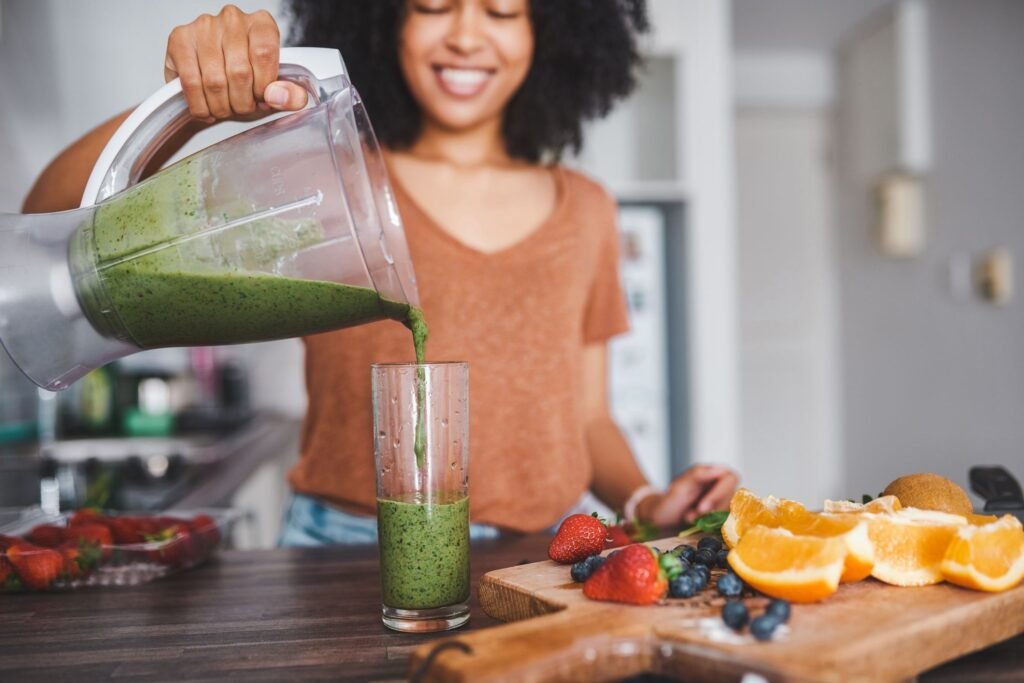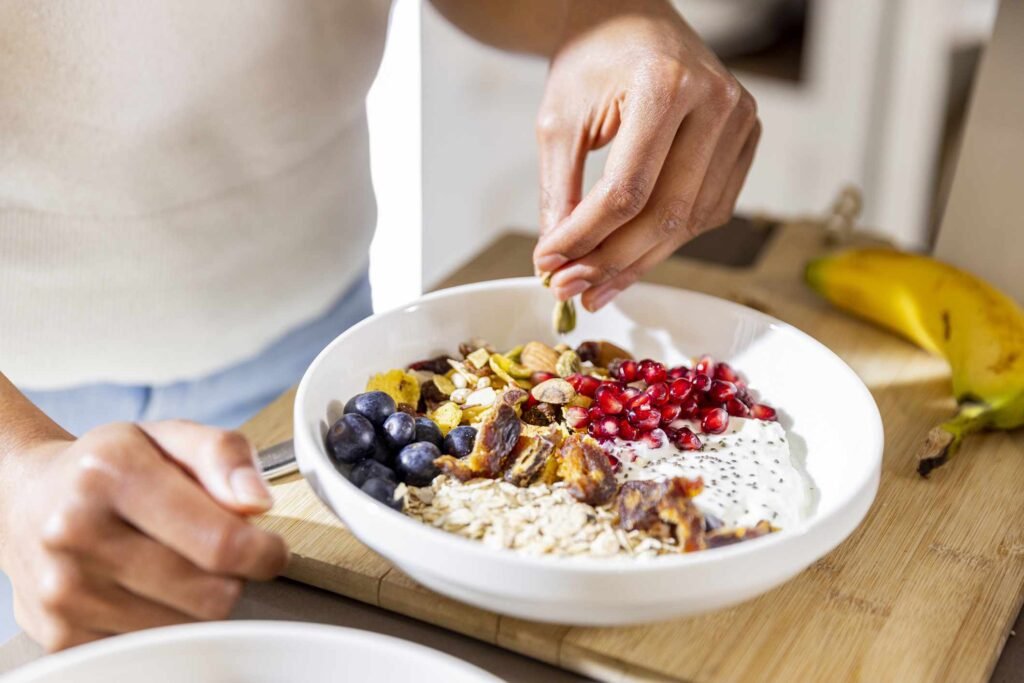
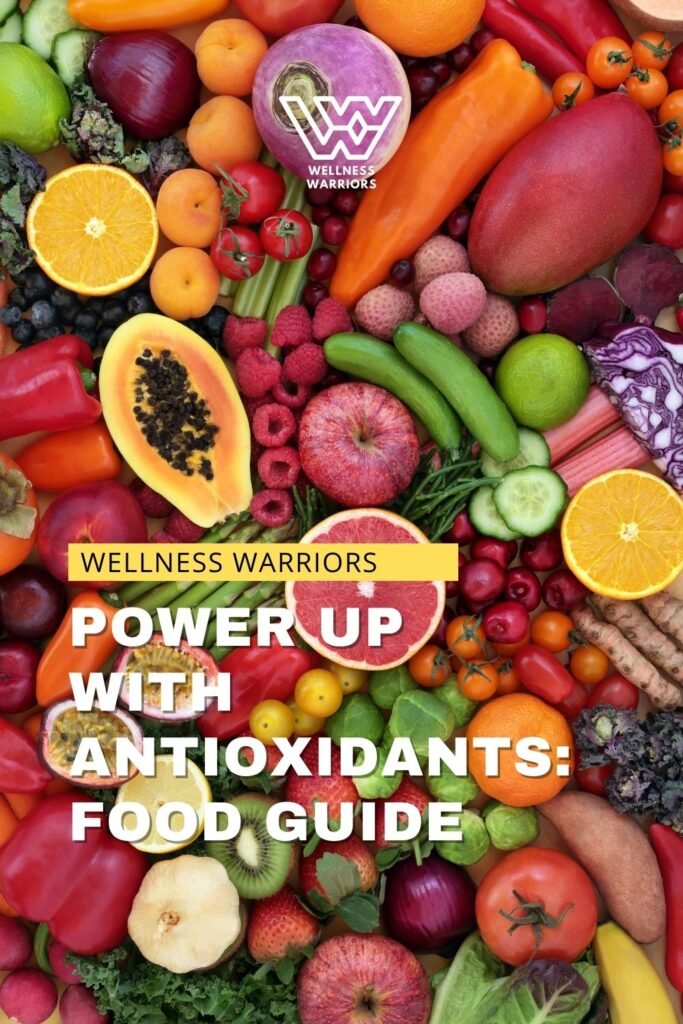
In today’s fast-paced world, bombarded by environmental stressors and processed foods, our bodies are constantly under siege from harmful free radicals. These unstable molecules can damage cells, leading to chronic diseases and premature aging. Enter antioxidants, the unsung heroes of our health journey. Packed with potent compounds, they neutralize free radicals, protecting our cells and bolstering our overall well-being.
Let’s dive deep into the world of antioxidants and discover the incredible foods that can supercharge your health.

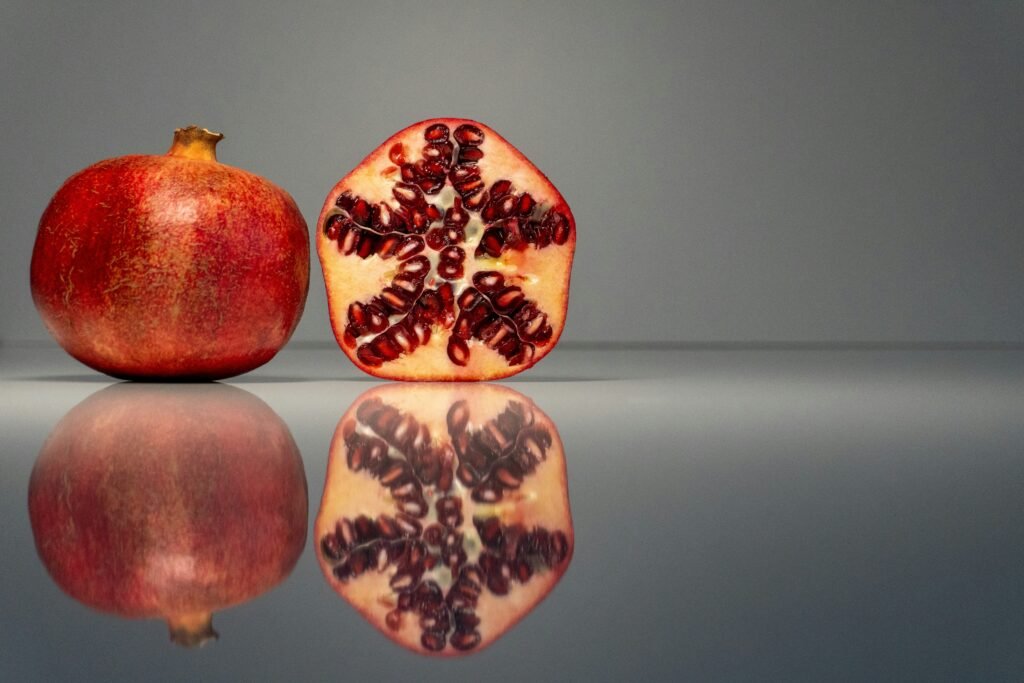
Understanding Antioxidants
Before we explore the antioxidant-rich food realm, let’s clarify what antioxidants actually are. These are substances found in plants that help protect our cells from damage caused by free radicals. Think of them as tiny warriors, fighting off invaders to maintain cellular harmony.
Antioxidants come in various forms, including vitamins C, E, and A, as well as compounds like beta-carotene, lycopene,and flavonoids. Each of these plays a crucial role in safeguarding our health.
Antioxidant Powerhouses: Foods to Embrace
Now, let’s delve into the foods that can significantly boost your antioxidant intake.
1. Berries: Nature’s Candy
Bursting with flavor and antioxidants, berries are a must-have in any health-conscious diet.
- Blueberries: These tiny powerhouses are packed with anthocyanins, which have been linked to improved brain function and heart health.
- Strawberries: Rich in vitamin C and ellagic acid, strawberries contribute to skin health and inflammation reduction.
- Raspberries: These delightful berries offer a potent dose of antioxidants, including flavonoids and vitamin C.
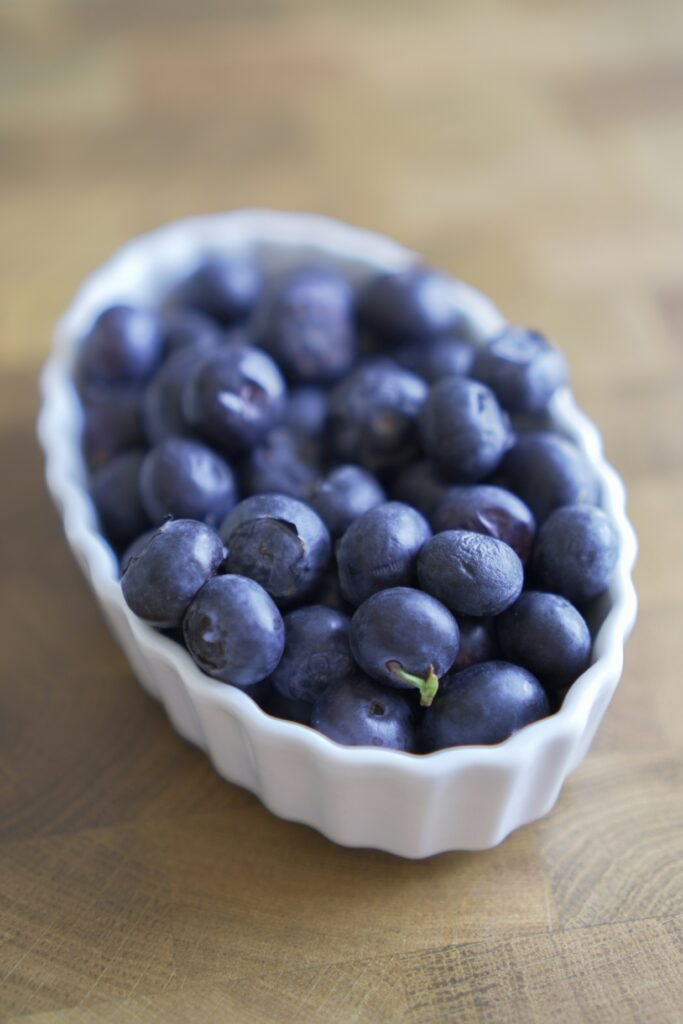
2. Leafy Green Vegetables: The Green Elixir
Leafy green vegetables are often hailed as nutritional powerhouses, and for good reason.
- Spinach: This leafy green is loaded with beta-carotene and vitamin C, supporting eye health and immune function.
- Kale: Packed with antioxidants like quercetin and kaempferol, kale helps protect against chronic diseases.
- Broccoli: This cruciferous vegetable is rich in sulforaphane, an antioxidant linked to cancer prevention.

3. Colorful Fruits: A Rainbow of Health
Fruits are not only delicious but also provide a vibrant array of antioxidants.
- Oranges: A classic source of vitamin C, oranges contribute to immune system support and collagen production.
- Pomegranates: Packed with antioxidants called punicalagins, pomegranates have been associated with heart health benefits.
- Mangoes: This tropical fruit contains beta-carotene and vitamin C, promoting skin health and immune function.
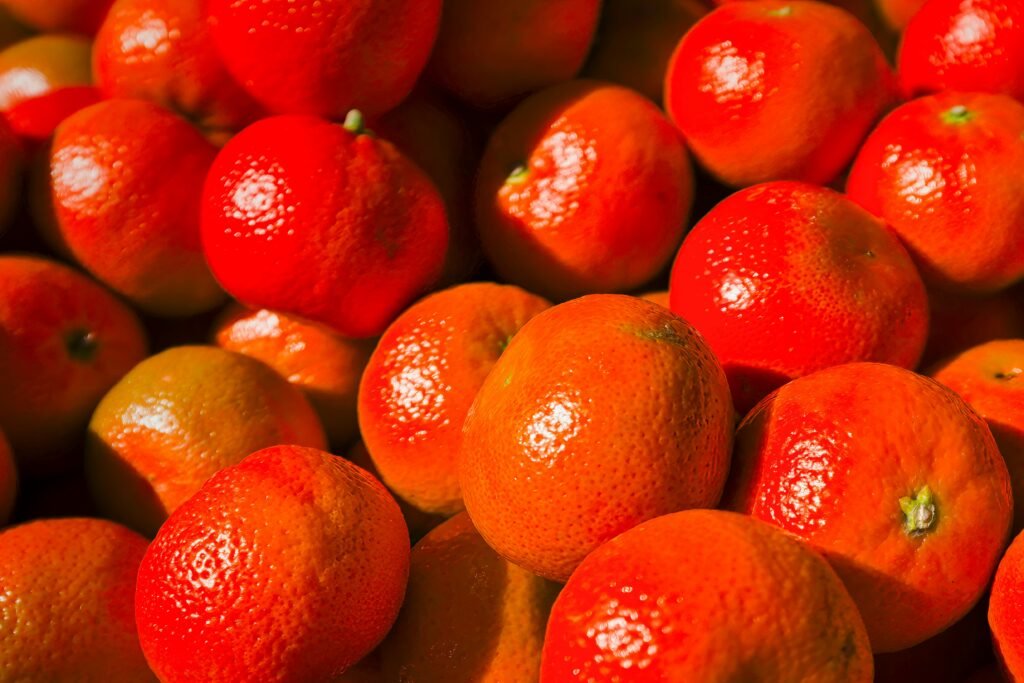
4. Nuts and Seeds: Tiny but Mighty
Don’t underestimate the power of nuts and seeds. They are packed with healthy fats and antioxidants.
- Almonds: Rich in vitamin E, almonds help protect cells from damage.
- Chia Seeds: These tiny seeds are packed with antioxidants, including omega-3 fatty acids.
- Walnuts: Known for their high omega-3 content, walnuts also offer antioxidants like ellagic acid.
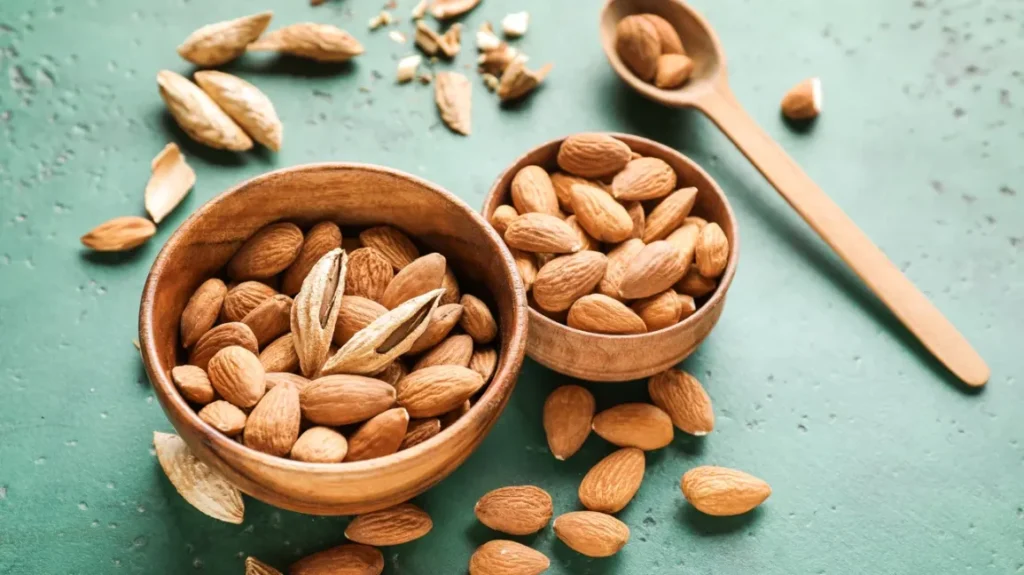
5. Dark Chocolate: Indulge Responsibly
Yes, you read that right! Dark chocolate, with a high cocoa content, is rich in flavonoids. However, moderation is key. Opt for dark chocolate with at least 70% cocoa for maximum benefits.

Incorporating Antioxidants into Your Diet
To maximize your antioxidant intake, consider these tips:
- Prioritize whole foods: Focus on consuming fresh, unprocessed foods.
- Vary your diet: Incorporate a diverse range of fruits, vegetables, nuts, and seeds into your meals.
- Cook intelligently: Use cooking methods that preserve antioxidants, such as steaming or stir-frying.
- Limit processed foods: These are often high in unhealthy fats and low in antioxidants.
By incorporating antioxidant-rich foods into your diet, you’re taking a proactive step towards protecting your health and well-being. Remember, while antioxidants are powerful allies, they should be part of an overall healthy lifestyle that includes regular exercise, adequate sleep, and stress management.
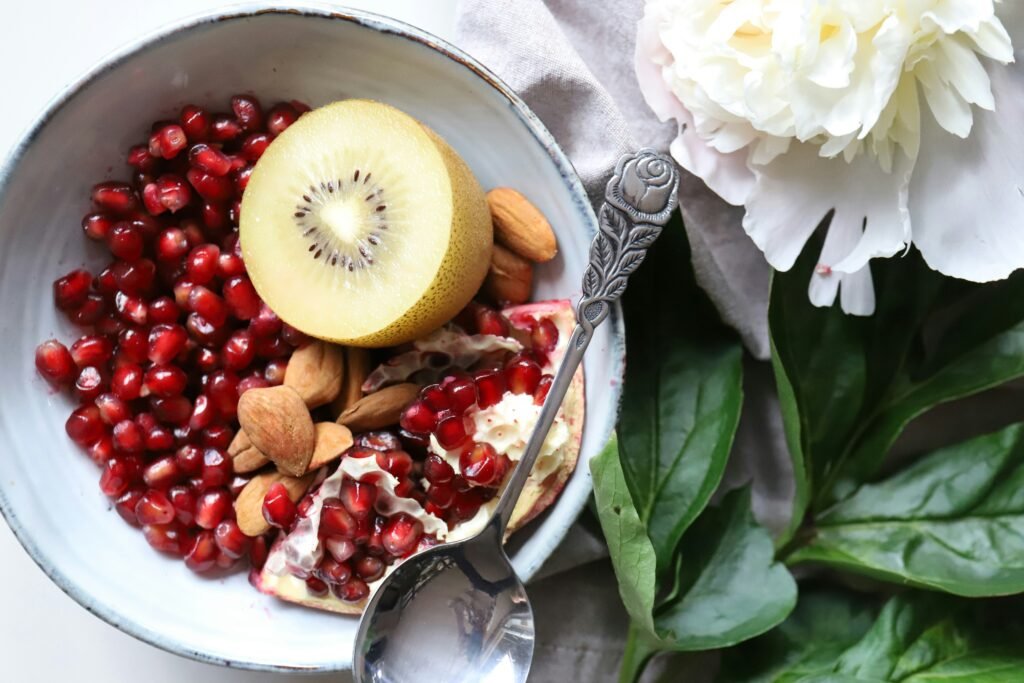
Embrace the power of antioxidants and unlock your body’s full potential. Your future self will thank you!
Unlocking the Benefits of Antioxidant-Rich Foods
We’ve established that antioxidants are essential for our health, acting as valiant defenders against harmful free radicals.But what exactly do these microscopic heroes do for us? Let’s explore the remarkable benefits of incorporating antioxidant-rich foods into your diet.
The Antioxidant Advantage: Benefits Galore
Antioxidants offer a wide array of health benefits, from protecting our cells to boosting our immune system.
1. Strong Immune System
Antioxidants play a pivotal role in supporting our immune function. Vitamin C, found in abundance in citrus fruits, is well-known for its immune-boosting properties. By neutralizing free radicals that can weaken our defenses, antioxidants help our body fight off infections and diseases.
2. Heart Health Hero
Chronic diseases like heart disease are often linked to oxidative stress. Antioxidants, particularly those found in fruits,vegetables, and nuts, help combat this stress, reducing the risk of heart disease. Studies have shown that a diet rich in antioxidants can lower blood pressure, reduce LDL (bad) cholesterol, and improve blood vessel function.

3. Skin Savior
Our skin is the body’s largest organ, and it’s constantly exposed to environmental stressors. Antioxidants, such as vitamin E and beta-carotene, protect the skin from damage caused by free radicals, helping to maintain a youthful and radiant complexion. They also play a role in collagen production, which is essential for skin elasticity.
4. Brain Booster
Emerging research suggests that antioxidants may contribute to brain health and cognitive function. Certain antioxidants,including those found in berries and leafy greens, have been linked to improved memory, reduced risk of Alzheimer’s disease, and protection against age-related cognitive decline.
5. Cancer Prevention
While not a cure, antioxidants may play a role in cancer prevention. Some studies have shown that a diet rich in antioxidants can help reduce the risk of certain types of cancer. However, it’s essential to note that cancer is a complex disease, and multiple factors contribute to its development.

6. Anti-Aging Elixir
Antioxidants are often hailed as the fountain of youth. By neutralizing free radicals, they help slow down the aging process at a cellular level. This can manifest in various ways, from improved skin health to reduced risk of age-related diseases.
Maximizing the Antioxidant Benefits
To reap the full rewards of antioxidants, it’s essential to incorporate a variety of antioxidant-rich foods into your diet. Remember, a balanced approach is key. Combine these foods with regular exercise, adequate sleep, and stress management for optimal results.
Remember: While antioxidants offer numerous benefits, they are not a magic pill. A healthy lifestyle that includes a balanced diet, regular exercise, and stress management is crucial for overall well-being.
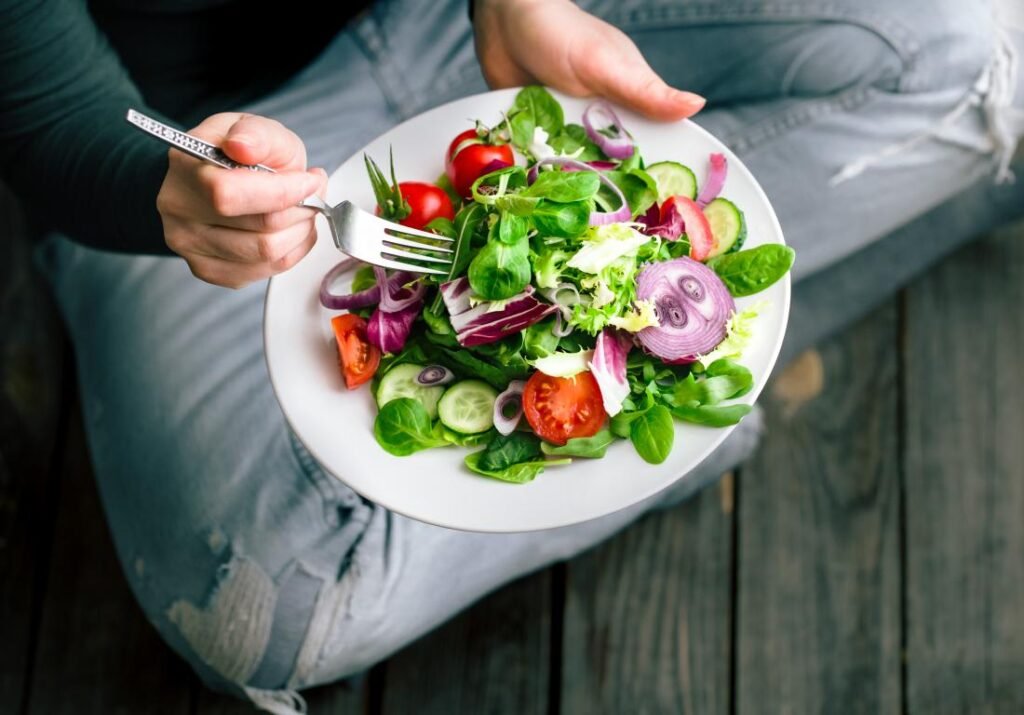
How to use antioxidants ?
We’ve explored the incredible benefits of antioxidants and discovered the food sources packed with these powerful compounds. Now, let’s dive into practical tips on how to harness the full potential of antioxidant-rich foods.
Incorporating Antioxidants into Your Daily Diet
To maximize your antioxidant intake, consider these strategies:
1. Prioritize Whole Foods
- Embrace the Rainbow: The more vibrant the colors of your plate, the higher the antioxidant content. Aim for a variety of fruits, vegetables, nuts, and seeds.
- Limit Processed Foods: These often contain added sugars, unhealthy fats, and fewer antioxidants. Focus on whole,unprocessed options.
2. Smart Cooking Techniques
- Gentle Cooking: Retain more antioxidants by using gentle cooking methods like steaming, stir-frying, and grilling.
- Minimize Microwaving: Microwaving can leach nutrients, including antioxidants.
- Proper Storage: Store fruits and vegetables in the refrigerator to preserve their antioxidant content.
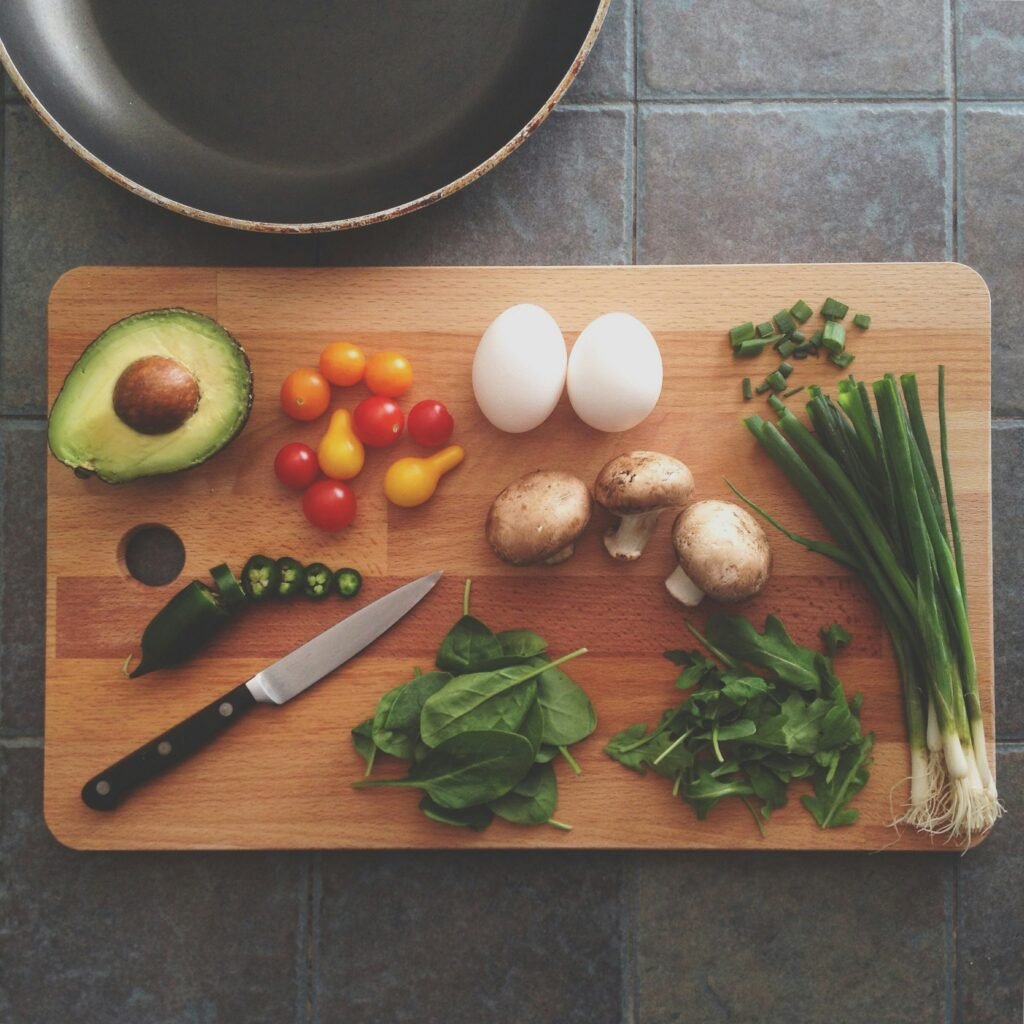
3. Juicing and Blending
- Nutrient-Packed Drinks: Create delicious and nutritious juices or smoothies using a variety of antioxidant-rich fruits and vegetables.
- Fiber-Rich Blends: For a more filling option, add leafy greens, nuts, or seeds to your smoothies.
4. Supplements: A Cautious Approach
- Consult a Healthcare Professional: While antioxidant supplements can be beneficial, it’s essential to consult with a healthcare provider to determine if they are right for you and to discuss appropriate dosages.
- Whole Foods First: Prioritize getting antioxidants from whole foods as they offer a broader range of nutrients.
5. Meal Planning and Preparation
- Weekly Meal Planning: Plan your meals in advance to ensure you’re incorporating a variety of antioxidant-rich foods.
- Batch Cooking: Prepare large quantities of antioxidant-rich dishes to save time and ensure consistent intake.

Creating Antioxidant-Rich Meals
Here are some meal ideas to inspire your antioxidant-packed culinary adventures:
- Breakfast: Start your day with a smoothie packed with berries, spinach, and a handful of nuts.
- Lunch: Enjoy a colorful salad with mixed greens, grilled chicken or tofu, and a variety of antioxidant-rich vegetables.
- Dinner: Savor a salmon fillet with roasted Brussels sprouts and sweet potatoes for a hearty and antioxidant-packed meal.
- Snacks: Munch on a handful of almonds, a piece of dark chocolate, or a handful of berries for a quick antioxidant boost.
By following these guidelines and incorporating antioxidant-rich foods into your daily routine, you’ll be well on your way to optimizing your health and well-being. Remember, consistency is key. Small, sustainable changes can lead to significant improvements in your overall health.

Maximizing the Antioxidant Power in Your Diet
Incorporating Antioxidants into Your Daily Diet
To maximize your antioxidant intake, consider these strategies:
- Prioritize Whole Foods: Embrace the Rainbow: The more vibrant the colors of your plate, the higher the antioxidant content. Aim for a variety of fruits, vegetables, nuts, and seeds.
- Limit Processed Foods: These often contain added sugars, unhealthy fats, and fewer antioxidants. Focus on whole, unprocessed options.
- Smart Cooking Techniques: Retain more antioxidants by using gentle cooking methods like steaming, stir-frying, and grilling.
- Minimize Microwaving: Microwaving can leach nutrients, including antioxidants.
- Proper Storage: Store fruits and vegetables in the refrigerator to preserve their antioxidant content.
- Juicing and Blending: Create delicious and nutritious juices or smoothies using a variety of antioxidant-rich fruits and vegetables.
- Meal Planning and Preparation: Plan your meals in advance to ensure you’re incorporating a variety of antioxidant-rich foods.
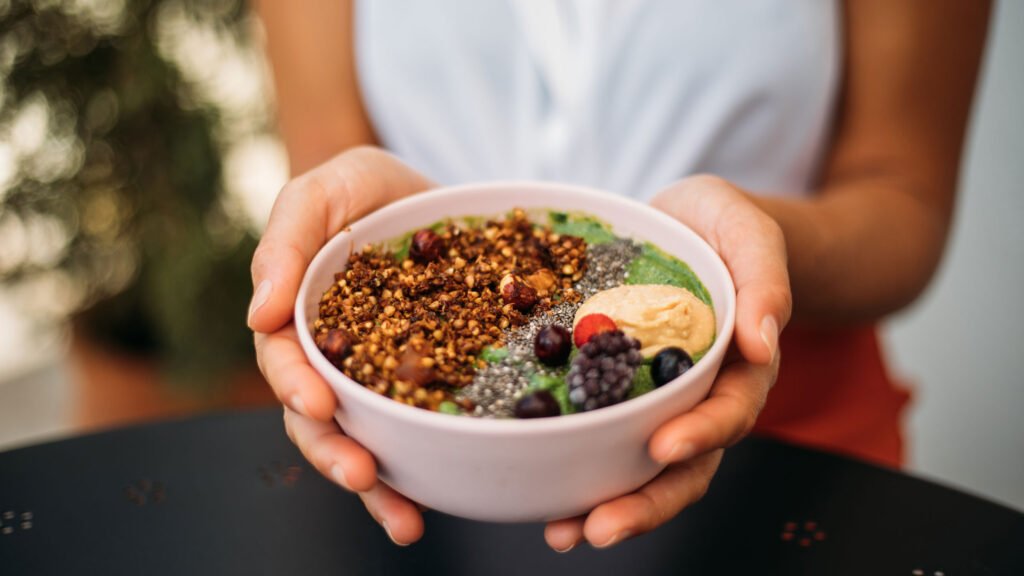
Creating Antioxidant-Rich Meals
Here are some meal ideas to inspire your antioxidant-packed culinary adventures:
- Breakfast: Start your day with a smoothie packed with berries, spinach, and a handful of nuts.
- Lunch: Enjoy a colorful salad with mixed greens, grilled chicken or tofu, and a variety of antioxidant-rich vegetables.
- Dinner: Savor a salmon fillet with roasted Brussels sprouts and sweet potatoes for a hearty and antioxidant-packed meal.
- Snacks: Munch on a handful of almonds, a piece of dark chocolate, or a handful of berries for a quick antioxidant boost.
Antioxidant-Rich Recipes
To provide you with even more inspiration, here are a few delicious and antioxidant-packed recipes:
- Berry-Packed Smoothie: Blend together a handful of mixed berries, a banana, Greek yogurt, spinach, and a splash of almond milk for a refreshing and nutritious start to your day.
- Roasted Vegetable Medley: Toss a variety of colorful vegetables like sweet potatoes, carrots, broccoli, and bell peppers with olive oil, herbs, and spices. Roast until tender and caramelized.
- Salmon with Lemon-Dill Quinoa: Grill or bake salmon and serve it with a bed of lemon-dill quinoa and steamed asparagus for a flavorful and antioxidant-rich meal.
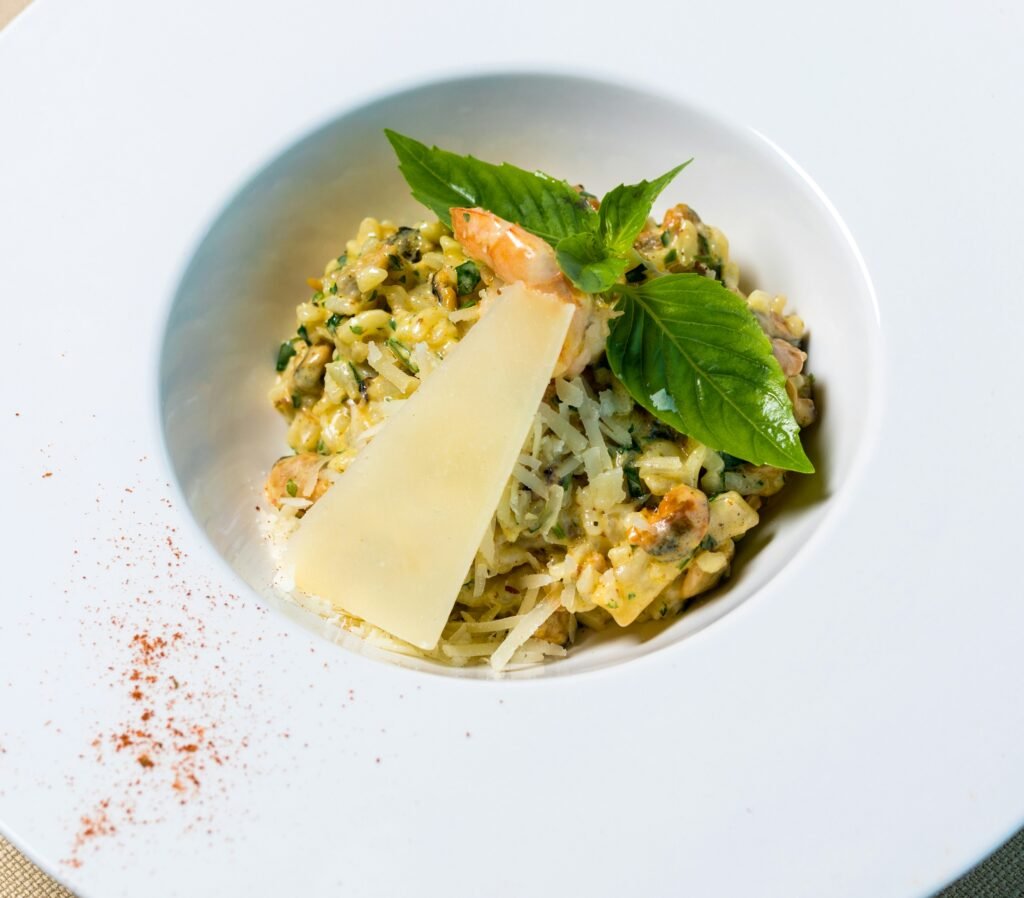
Antioxidants and Disease Prevention
While antioxidants are not a miracle cure, they play a crucial role in preventing chronic diseases. Here’s a brief overview of how they can help:
- Heart Disease: Antioxidants help reduce inflammation, lower blood pressure, and improve blood vessel function, all of which are important for heart health.
- Cancer: Some studies suggest that antioxidants may help protect cells from damage that can lead to cancer.
- Neurodegenerative Diseases: Antioxidants may help protect brain cells from oxidative stress, reducing the risk of conditions like Alzheimer’s and Parkinson’s disease.
- Eye Health: Antioxidants like lutein and zeaxanthin are essential for maintaining healthy vision and protecting against age-related macular degeneration.
Remember: While incorporating antioxidant-rich foods into your diet is beneficial, it’s essential to maintain a balanced lifestyle that includes regular exercise, adequate sleep, and stress management for optimal health.
